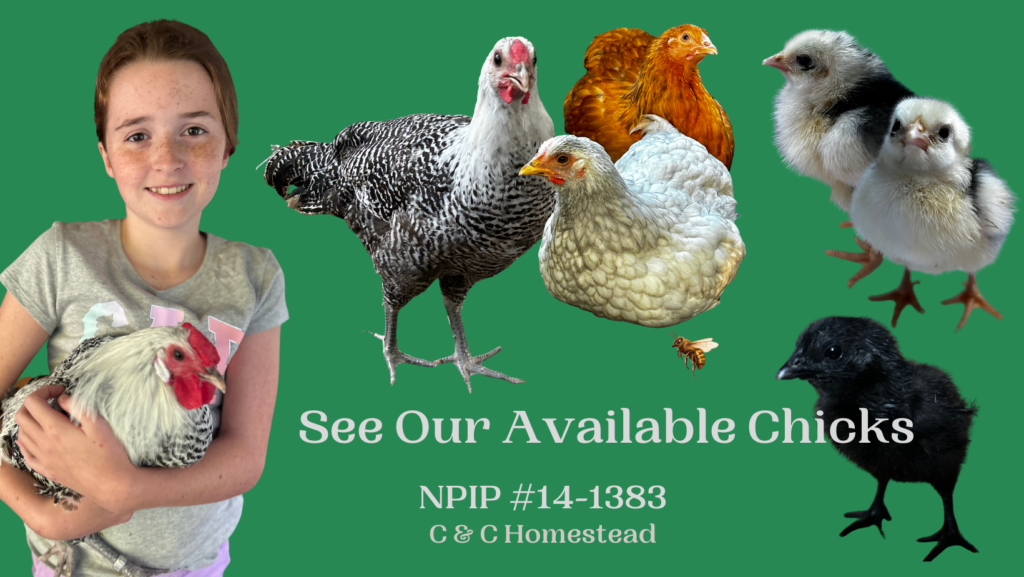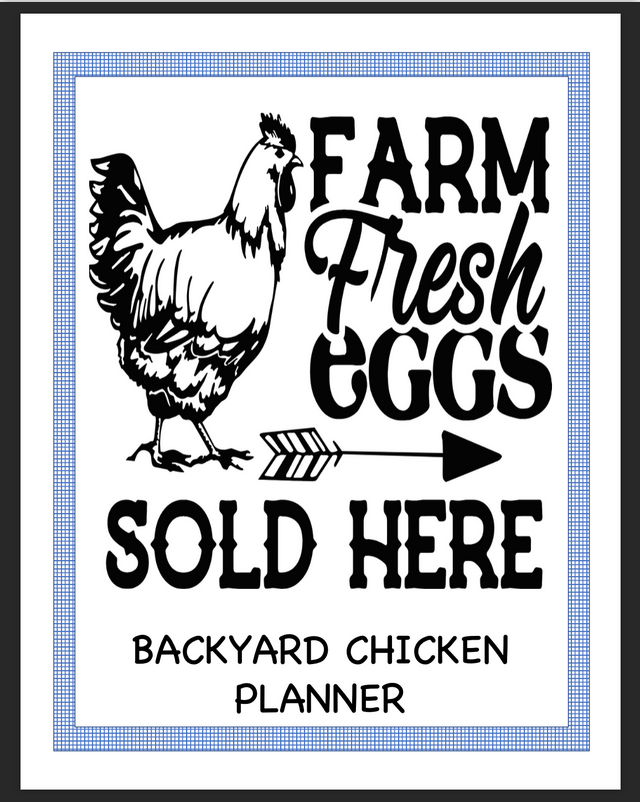Balancing Corporate & Homesteading Lifestyles
Disclosure Guidelines for Selling Birds or Eggs
If you are selling chicks, hatching eggs, or adult birds from a flock that has been exposed to Marek’s Disease, it’s critical to follow ethical and transparent practices. Disclosing the health status of your flock is not only a moral responsibility but also helps protect other flocks, build trust with buyers, and prevent potential legal issues. This guide provides detailed disclosure guidelines and a template for full transparency when selling birds or eggs from a Marek’s-positive flock.
Why Transparency Matters
- Protecting Other Flocks:
- Marek’s Disease is highly contagious, spreading via feather dander, dust, and surfaces. Informing buyers ensures they can take proper precautions to protect their own flocks.
- Ethical Responsibility:
- Full disclosure builds trust with buyers and shows that you prioritize flock health and biosecurity over profits.
- Preventing Disputes:
- Informing buyers in advance reduces the likelihood of misunderstandings or accusations if birds later develop Marek’s symptoms.
- Supporting Responsible Flock Management:
- Buyers who are aware of Marek’s exposure can make informed decisions about vaccination, quarantine, and flock integration.
What to Disclose
1. Flock Health Status
- Clearly state whether your flock has been exposed to Marek’s Disease or if any birds have shown symptoms. Examples:
- "My flock has been exposed to Marek’s Disease but is managed with strict biosecurity measures."
- "This flock is Marek’s-positive, with some birds showing symptoms of the disease."
- "Chicks are vaccinated for Marek’s Disease at hatch, but they may still be carriers of the virus."
2. Vaccination Details
- Indicate whether your flock is vaccinated for Marek’s Disease and, if so, at what age the vaccination was administered. Example:
- "All chicks are vaccinated for Marek’s Disease within 24 hours of hatching to reduce symptoms and mortality."
3. Buyer Recommendations
- Provide buyers with information on how to integrate birds or eggs from your flock into their own safely. Examples:
- "It’s recommended to quarantine new birds for 30 days before introducing them to your flock."
- "If purchasing hatching eggs, you may want to vaccinate chicks for Marek’s Disease at hatch."
4. Risks of Marek’s Disease
- Briefly explain what Marek’s Disease is, how it spreads, and the potential risks for buyers who are unaware. Keep this concise but transparent.
Ethical Practices for Selling Birds or Eggs
- Sell Vaccinated Chicks Whenever Possible:
- Vaccinating chicks within 24 hours of hatching provides them with the best protection against Marek’s symptoms. Offering vaccinated birds shows that you are taking steps to manage the disease responsibly.
- Provide Documentation:
- Include a written disclosure statement with each sale, outlining the health status of your flock and any vaccination details.
- Encourage Quarantine:
- Educate buyers about the importance of quarantine for all new birds, even those from vaccinated or seemingly healthy flocks.
- Label Hatching Eggs Clearly:
- Clearly label hatching eggs as coming from a Marek’s-positive flock so buyers can decide if they want to vaccinate chicks at hatch.
- Avoid Selling Birds That Are Symptomatic:
- Birds showing signs of Marek’s Disease (e.g., paralysis, tumors) should not be sold. Selling symptomatic birds is unethical and risks spreading the virus further.
- Communicate Clearly and Openly:
- Be proactive about answering buyer questions and providing resources for managing Marek’s Disease.
Disclosure Template for Selling Birds or Eggs
Below is a sample disclosure statement you can use when selling chicks, hatching eggs, or adult birds from a Marek’s-positive flock.
Sample Disclosure Statement
Dear Buyer,
I appreciate your interest in purchasing [chicks, hatching eggs, or adult birds] from my flock. To ensure full transparency and ethical practices, I want to provide you with important information regarding the health status of my flock.
- Flock Health Status: My flock has been exposed to Marek’s Disease, a common but serious virus in chickens that spreads through feather dander and dust. While some birds in my flock remain asymptomatic, others have shown symptoms consistent with Marek’s Disease.
- Vaccination Details: All chicks sold are vaccinated for Marek’s Disease within 24 hours of hatching. Vaccination helps reduce symptoms and mortality but does not prevent birds from being carriers of the virus.
- Buyer Recommendations: I recommend that you:
- Quarantine new birds for at least 30 days before introducing them to your flock.
- Vaccinate any new chicks for Marek’s Disease at hatch if they will be integrated into a Marek’s-negative flock.
- Understanding the Risks: Birds or eggs from my flock may carry the Marek’s virus. While vaccination reduces symptoms, exposure to Marek’s-positive birds or environments can still put unvaccinated flocks at risk.
By purchasing birds or eggs from my flock, you acknowledge that you understand the health status of my flock and the risks associated with Marek’s Disease. If you have any questions or would like additional resources for managing Marek’s, please don’t hesitate to contact me.
Thank you for your understanding,
[Your Name]
[Your Contact Information]
Additional Tips for Communication
- Include the Disclosure in Writing:
- Provide this statement with every sale, whether in person or online. Include it in invoices or shipping materials for hatching eggs.
- Post a Marek’s Disclosure Online:
- If you sell birds or eggs through a website or social media, include the disclosure in your sales listings.
- Educate Buyers on Vaccination and Biosecurity:
- Share resources or recommendations for Marek’s vaccination and safe flock integration, helping buyers make informed decisions.
Key Takeaways
- Always disclose your flock’s exposure to Marek’s Disease to buyers, including details about symptoms, vaccination, and risks.
- Encourage buyers to practice quarantine and biosecurity measures to protect their flocks.
- Provide a written disclosure statement with every sale to ensure transparency and trust.
- Avoid selling symptomatic birds and focus on offering vaccinated chicks and clearly labeled hatching eggs.
By following these disclosure guidelines, you can practice ethical flock management, protect other flocks, and build a reputation as a responsible seller.
Risks of Selling Hatching Eggs or Newly Hatched Chicks from a Marek’s-Positive Flock
When selling hatching eggs or newly hatched chicks from a flock exposed to Marek’s Disease, there are significant risks to consider for both the buyer and the seller. Marek’s Disease is highly contagious and persists in the environment, making it possible for the virus to spread through eggs, chicks, and contaminated materials. Below, we outline the risks associated with selling hatching eggs or chicks, as well as recommendations to mitigate these risks.
Understanding Marek’s Disease Transmission
Marek’s Disease is caused by a herpesvirus that spreads primarily through feather dander and dust. The virus can contaminate surfaces, equipment, and bedding, persisting in the environment for extended periods. While the disease does not pass directly through the egg to the developing chick (vertical transmission), there are still ways the virus can accompany eggs or chicks to a buyer’s flock.
1. Risks Associated with Selling Hatching Eggs
Hatching eggs from a Marek’s-positive flock can pose risks because of external contamination and the possibility of introducing the virus into the buyer’s incubator or flock.
Key Risks for Hatching Eggs
- Contaminated Eggshells:
- The virus can adhere to the surface of eggshells via feather dander, dust, or droppings from the Marek’s-positive environment.
- During incubation, heat and humidity can encourage viral particles on the shell to spread to other eggs or hatchlings.
- Cross-Contamination During Handling or Shipping:
- If eggs are not handled with gloves or sanitized, the virus may be transferred to egg cartons, packing materials, or the buyer’s incubator.
- Risk to the Buyer’s Incubator and Chicks:
- If the buyer incubates contaminated eggs, the virus may infect their incubator, exposing other hatching eggs or chicks. Feather dust and dander can accumulate inside the incubator, creating a long-term risk.
Precautions for Hatching Eggs
- Clean and Disinfect Eggs: Wipe eggshells with a poultry-safe disinfectant or a solution of 1 part bleach to 9 parts water before packing.
- Label Clearly: Inform buyers that the eggs come from a Marek’s-positive flock and recommend vaccinating chicks immediately after hatch.
- Educate Buyers: Share information on Marek’s transmission and safe practices for incubating eggs from exposed flocks.
2. Risks Associated with Selling Newly Hatched Chicks
Newly hatched chicks from a Marek’s-positive flock carry a higher risk of spreading the virus, as they are surrounded by contaminated feather dander and dust from the incubator or brooder.
Key Risks for Chicks
- Carrier Status of Chicks:
- Even vaccinated chicks from Marek’s-positive parents may be carriers of the virus, meaning they can shed the virus and infect unvaccinated birds in the buyer’s flock.
- Contaminated Hatchery or Brooder Environment:
- Hatchlings are often exposed to Marek’s virus immediately upon entering the world. If the incubator or brooder is contaminated, the chicks themselves may carry viral particles on their bodies or in their feathers.
- Risk to Marek’s-Negative Flocks:
- If the buyer’s flock has not been exposed to Marek’s Disease or vaccinated, introducing chicks from a Marek’s-positive flock can cause an outbreak, potentially resulting in severe illness or mortality.
- Delayed Onset of Symptoms:
- Chicks infected with the Marek’s virus may not show symptoms for weeks or months, making it difficult for buyers to trace the source of infection.
3. Risks to the Seller
As a seller, failing to disclose the Marek’s status of your flock can pose risks to your reputation, legal liabilities, and the health of other flocks.
Key Risks for Sellers
- Ethical Concerns:
- Selling chicks or eggs without disclosing the Marek’s-positive status of your flock is unethical and may result in harm to the buyer’s flock.
- Reputational Damage:
- Word-of-mouth or negative reviews may harm your reputation if buyers discover their flock was infected after purchasing from you.
- Legal Risks:
- In some cases, failing to disclose the health status of your flock could result in disputes or legal action, especially if the buyer’s flock suffers losses.
Recommendations to Mitigate Risks
To responsibly sell hatching eggs or newly hatched chicks from a Marek’s-positive flock, take the following precautions:
For Hatching Eggs
- Sanitize Eggs:
- Clean the surface of all eggs with a poultry-safe disinfectant to reduce external contamination.
- Inform Buyers:
- Clearly disclose that the eggs come from a Marek’s-positive flock and recommend vaccinating chicks at hatch.
- Recommend Incubator Cleaning:
- Advise buyers to thoroughly clean and disinfect their incubator after hatching eggs from your flock.
For Newly Hatched Chicks
- Vaccinate Chicks Immediately:
- Ensure all chicks are vaccinated for Marek’s Disease within 24 hours of hatching. Inform buyers that vaccination reduces symptoms but does not stop birds from being carriers.
- Provide Documentation:
- Include a vaccination record with each chick purchase, noting the date of vaccination and vaccine used.
- Advise Quarantine:
- Recommend that buyers quarantine chicks for at least 30 days before introducing them to an existing flock.
- Clean and Disinfect Equipment:
- Use clean, sanitized brooders, incubators, and transport boxes to reduce contamination.
Full Disclosure is Essential
When selling eggs or chicks from a Marek’s-positive flock, full transparency is critical to maintaining trust and protecting both your buyers and their flocks. Always provide a written disclosure of your flock’s Marek’s status, including:
- Details about vaccination (whether administered or recommended).
- Information on the risks of Marek’s transmission and how to manage it.
- Recommendations for safe handling, quarantine, and biosecurity measures.
Key Takeaways
- Hatching Eggs Risks: Contaminated eggshells and improper handling can spread the Marek’s virus to the buyer’s flock or incubator.
- Chicks Risks: Newly hatched chicks can be carriers of Marek’s virus and may infect unvaccinated birds in the buyer’s flock.
- Seller Responsibility: Failing to disclose Marek’s-positive status risks harm to other flocks, damages your reputation, and may lead to legal consequences.
- Best Practices: Always disclose, sanitize, vaccinate, and educate buyers to ensure ethical and responsible sales.
By taking proactive steps to mitigate risks, you can sell hatching eggs and chicks responsibly while protecting the health of other flocks and preserving your reputation as a trustworthy seller.



